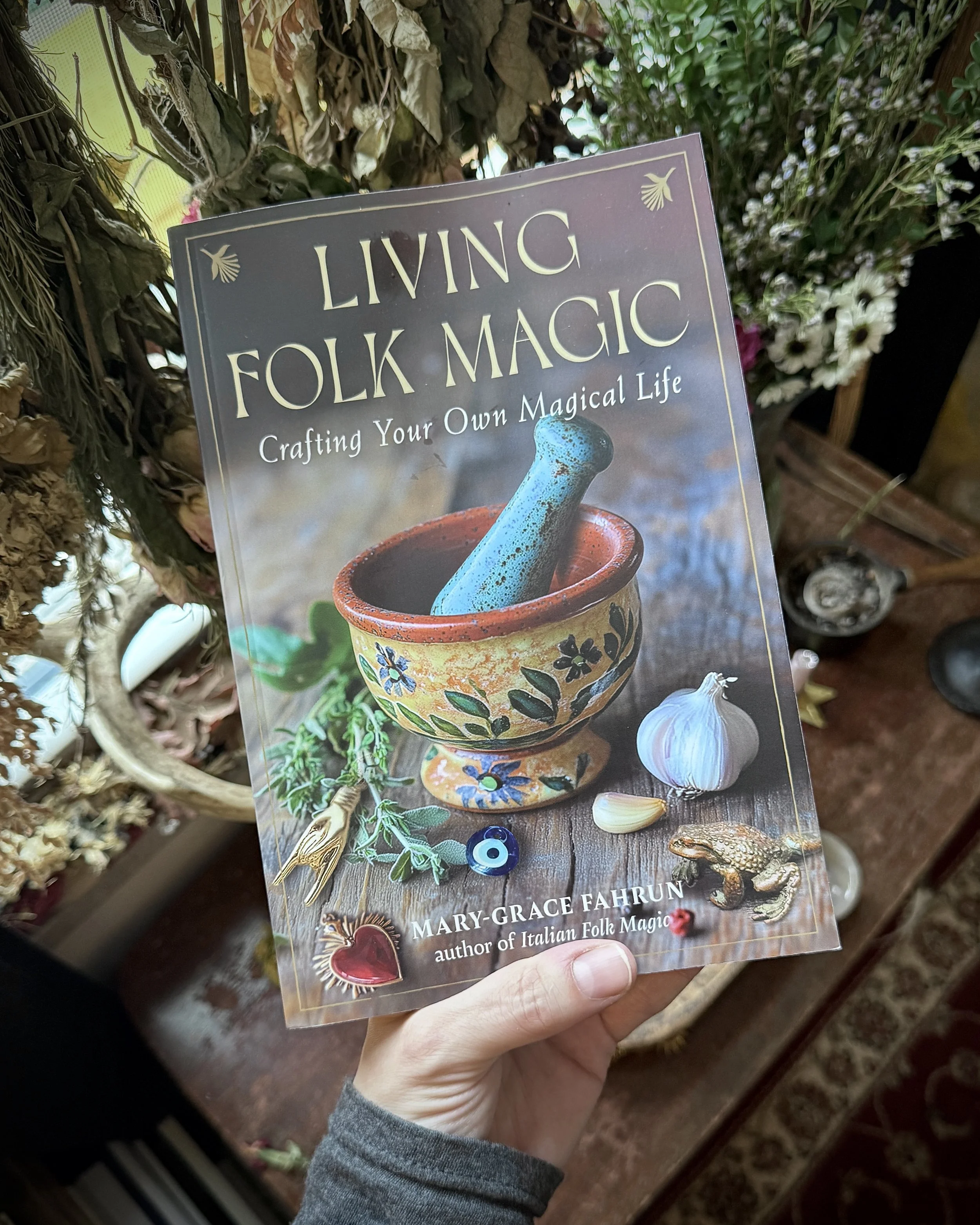Living Folk Magic (the sacred and the shared)
I started reading Living Folk Magic: Crafting Your Own Magical Life by Mary-Grace Fahrun over the weekend and it had me thinking about the current wave of books on practicing folk magic.
Something I love and appreciate about this author is the honesty in her storytelling. It’s been years since I’ve read Italian Folk Magic, but after a few pages, the voice was immediately familiar.
Of course, it’s a testimony to the talent and skill of the writer, but it was also refreshing to read lived accounts from someone who has faced and engaged with the tangible aspects of folk magic. A lot of modern publications fall short in that regard, reading more like summaries or vignettes than experiences.
I kind of blame Instagram. Social media platforms do a great job of nurturing a creator’s content in a way that will touch the widest possible audience. They encourage artists to toe the line between authentic expression and mass appeal, avoiding details that might alienate certain audiences. They want a popular cadence and digestible art.
To be fair, that visibility can be very valuable, but often demands simplification. Folk magic has always adapted to the mediums of its time. The difference is that our current mediums are built to measure and monetize attention, which changes the energy of what’s shared.
My opinion: this matters because folk magic is rooted in lived experience. It comes from real people. And yes, folk magic has always been personal and adaptable so no one can (or should) dictate how anyone frames their practice, but the way it’s portrayed inevitably influences the general perception.
The concept is drifting somewhat from its roots as a practical resource into something more introspective. While it rightly acknowledges past traumas, it does less to engage with the immediate, material hardships the folk are facing now (illness, financial instability, systemic oppression, to name a few).
And yes, introspection has its place, but when it becomes the dominant mode, it risks turning folk magic from a communal practice into a symbolic or therapeutic one.
“Some things should be kept sacred.”
Absolutely. Secrecy and discernment have always been a part of it. Some knowledge loses power when it’s exposed to an audience that treats it like entertainment. But I also think there’s a difference between keeping something sacred and sanding off all its edges.
All of that to say, I appreciate the author’s skill in conveying folk magic as a lived practice, nuanced and clearly grounded in experience.

